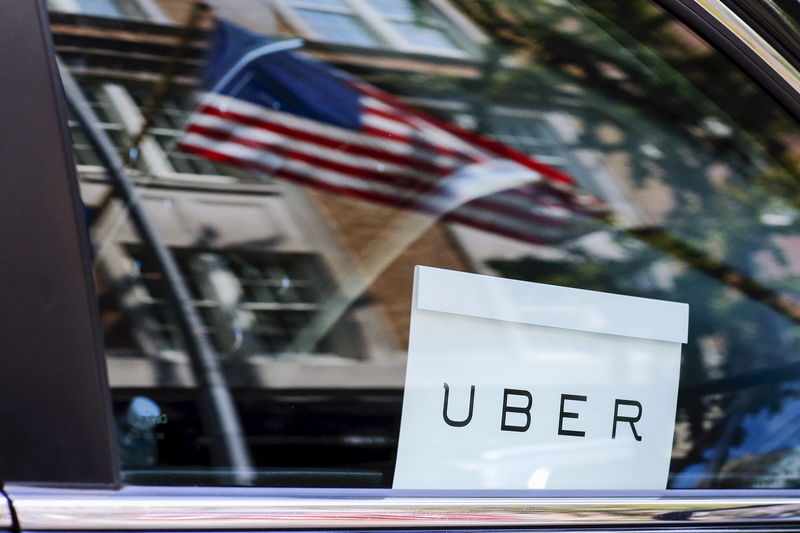(Bloomberg Opinion) -- Uber Technologies (NYSE:UBER) initial public offering performed poorly in its first day of trading Friday, falling as the broader market rose. Lyft 's (NASDAQ:LYFT) debut in the stock market didn’t do well, either. Is there something about internet-based, money-losing ride-hailing that makes it a bad business? In its modern incarnation, yes.
Unprofitable IPOs are nothing new. I came of age in the markets in the late 1990s when there were plenty of profitless companies going public. But the difference is that back then startups always had a plan to become profitable. Go far enough out in the pro formas and you could see a path to profitability. With Uber, there essentially is no plan, except some Hail Mary of an idea concerning self-driving cars, where Uber is way behind.
Uber can’t raise prices and can’t pay drivers less— they are protesting as it is. Everyone knows it is essentially checkmate. I like to call Uber and Lyft intractable businesses. There are plenty of others in the pipeline either looking to go public or seriously thinking about doing so, including a very silly one in flexible workspace company WeWork Cos. and a ludicrous one from venture capital firm Softbank Group Corp.
But Uber is the bellwether because it’s the first truly intractable company to go public. People have been saying for a while that this IPO could determine the direction of Silicon Valley for years to come. It could determine much more than that.
Uber does not charge enough for a few reasons. The biggest is that it wants to put its competition, taxis, out of business. In the old days, it would be impossible to do something as ambitious as putting all taxis out of business because no investor would put up with losses for the very long time it would take to accomplish that goal. But pre-IPO Uber investors have because of founder Travis Kalanick. He told an incredible story, and his sales pitch for Uber was about more than just cab rides. He would talk about things like the capacity utilization of a car and how the sharing economy was much more efficient. Visionary stuff.
Then again, for investors in a private company, not having to mark to market helps when it comes to the patience needed to stick around as losses mount. The public markets are different, especially when there is the trading screens are full of red.
But there’s something else to consider, and it has to do with the broader economy. In essence, investors allowing Uber to run at a loss is a massive consumer subsidy. Rides have been priced below where they should have been in its quest to put all taxicabs out of business, and those billions of dollars in losses at Uber were billions of dollars in gains for consumers. Uber lost and consumers won.
Uber is far from the only company that subsidizes consumers. Robinhood Financial LLC is another example: its commission on stock trades is zero. Robinhood, of course, makes money in nontransparent ways, such as margin lending, but it still represents a huge consumer subsidy in an attempt to put E-Trade Financial Corp. and TD Ameritrade Holding Corp. out of business.
Amazon.com Inc (NASDAQ:AMZN). is a bit like a publicly-traded example of this phenomenon. In Amazon’s case, profits from its cloud business probably subsidizes the retail business, which on a standalone basis would be intractable. Still, Amazon is busy putting brick-and-mortar retailers out of business, and investors have tolerated little in the way of profits for 25 years (although Amazon is finally starting to show some profits).
The question you have to ask yourself is what would happen if investors suddenly lost their patience and demanded profits? Naturally, Uber and Robinhood and Amazon would have to raise prices, which is another way of saying that there could be a lot of inflation. We have had a hunch that technology is deflationary, but we didn’t really know why until now. Silicon Valley probably projects hundreds of billions of dollars in consumer subsidies into the economy every year
It’s possible that the Federal Reserve has a fairly poor understanding of inflation. It’s also possible that President Donald Trump is right and that lowering interest rates may not risk spurring inflation. In fact, lowering rates may have the opposite effect—driving more investment into venture capital and private equity, actually driving inflation rates lower. Maybe low interest rates aren’t the result of low inflation—maybe they’re actually the cause.
